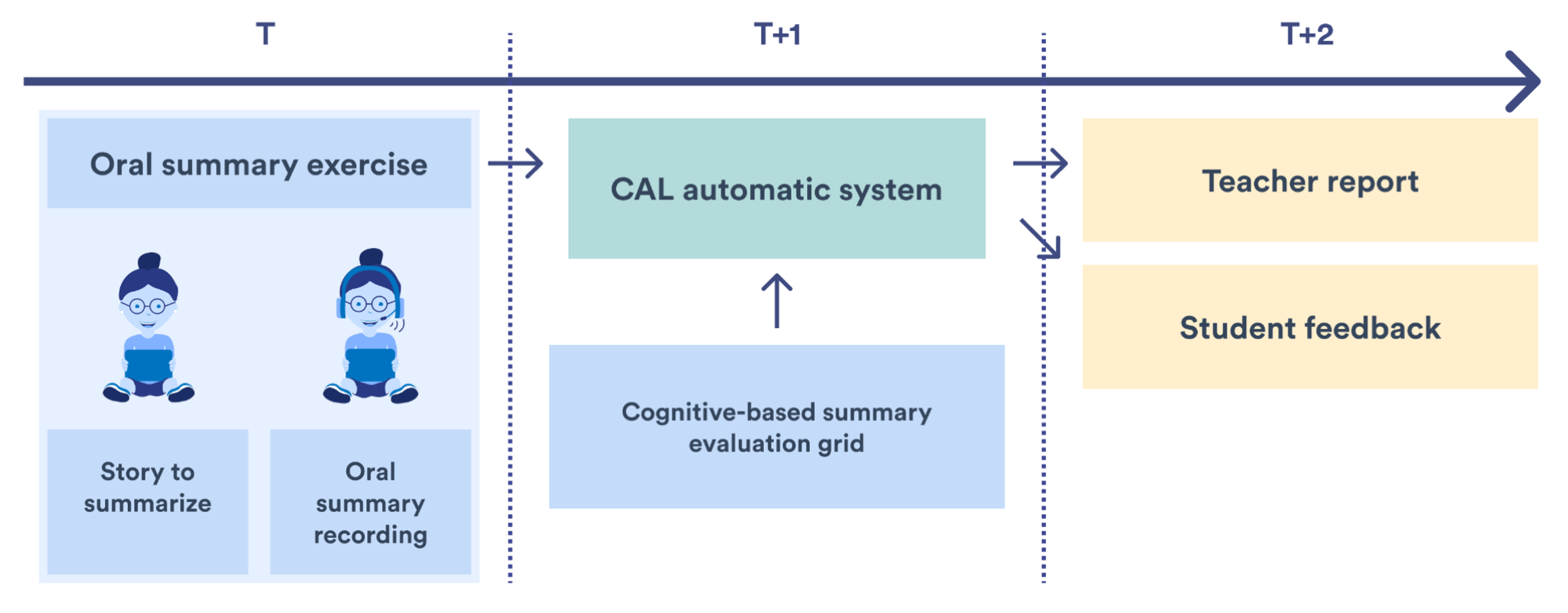Training CHIldren reading Comprehension skills with Adapted Artificial Intelligence (CHICA-AI)
Date: 03/2024 - 04/2028
Funding: ANR
Call: AAPG2023
Partners: Lalilo (Toulouse), IRIT (Toulouse), EMC (Lyon)URL: https://lium.univ-lemans.fr/en/chica-ai/
LIUM Participant(s): |  Nathalie Camelin Nathalie Camelin |  Antoine Laurent Antoine Laurent |  Emmanuelle Billard Emmanuelle Billard |  Aghilas Sini Aghilas Sini |
The 2019 PISA study shows that 20% of French 15-year-old students have severe difficulties in reading and that socio-economic gaps widen the differences in levels. Lalilo intends to reduce these inequalities by developing an online platform based on artificial intelligence to differentiate reading learning. Reading comprehension is the goal of the reading process, and these skills can be developed through training activities, such as text summarization.
We propose to create a Computer-assisted learning (CAL) system to train children from grades 4-5 to produce qualitative oral summaries, by automatically analyzing their production and providing differentiated feedback. Our system will combine automatic speech recognition (ASR), speech language understanding (SLU), and natural language processing while incorporating cognitive science knowledge. The project is organized in three main tasks.
(1) We will create a set of original texts for the summarizing activity, and an evaluation grid based on psycho-cognitive summary assessment grids. Data will be gathered through the Lalilo platform and annotated to train and evaluate the automatic systems.
(2) We will build several ASR and SLU systems to retrieve detailed information for automatically completing the evaluation grid. Acoustic measures, self-supervised speech representations, robustness to noise, named entity recognition, speech-text sentence-level embeddings, topic modeling, and syntactical analysis, will be investigated for these systems.
(3) The CAL intervention will be implemented and evaluated, by constructing automatic scores for each evaluation criterion, validating them against manual annotations and traditional reading comprehension measures, and designing targeted feedback for students and teachers. Finally, the impact of the CAL intervention on students’ learning will be assessed through in-class randomized controlled trials.

 Français
Français


